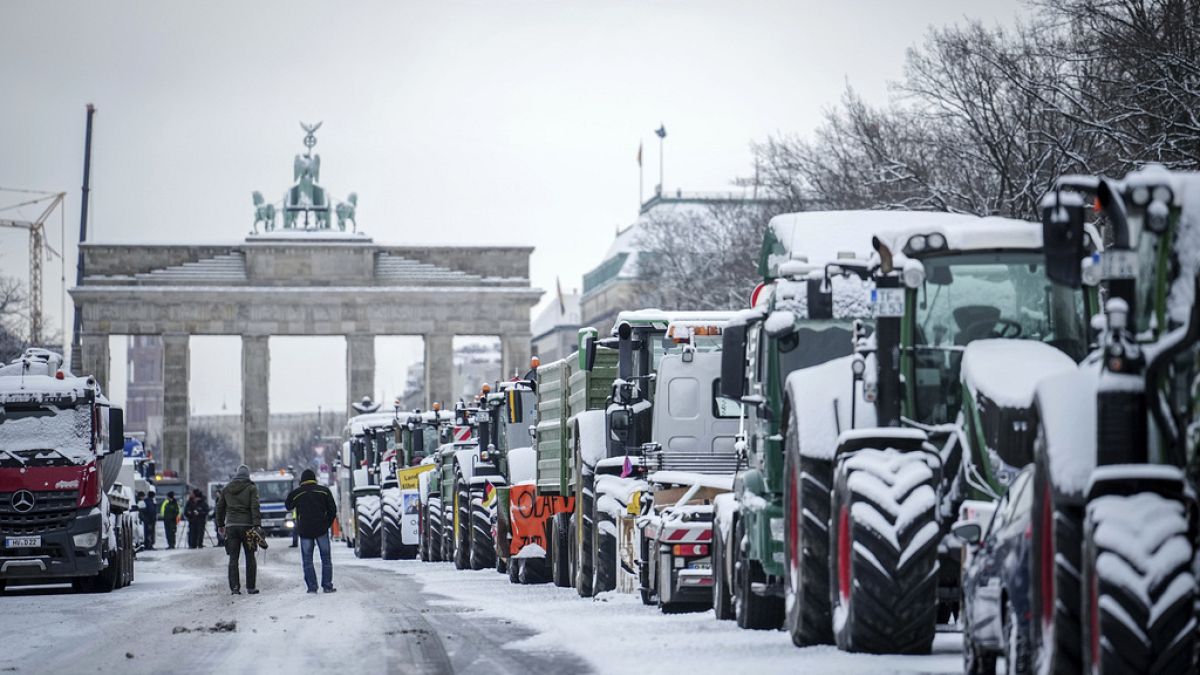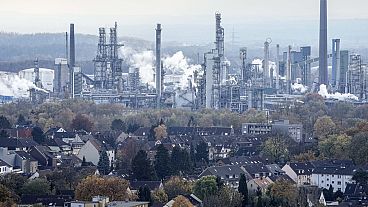The independent European Scientific Advisory Board on Climate Change has warned the EU that its greenhouse gas reduction targets could slip out of reach without immediate implementation of existing policy, and moves to end fossil fuel subsidies and tackle emissions related to farming and land use.
The EU risks falling behind in a “race against the clock” to fulfil its commitment to eliminate the bloc’s carbon footprint by mid-century, an independent scientific advisory panel has warned, urging governments to take immediate action to get back on target to more than halve net greenhouse gas output by the end of the decade.
The European Scientific Advisory Board on Climate Change (ESABCC) was established under the groundbreaking Climate Law adopted in 2021 to monitor progress of legally binding targets of a 55% cut in emissions by 2030 compared to a 1990 baseline, on the way to reaching net-zero by 2050, where any remaining emissions will be balanced by forest carbon sinks and other natural or technological CO2 removals.
In a report published today (18 January), the board warned the 2030 target would only be achieved with “rapid, robust and effective implementation of the raft of legislation on renewables, energy efficiency and land use tabled by European Commission as part of its flagship ‘Green Deal’ policy.”
Briefing reporters ahead of publication, chief adviser Ottmar Edenhofer said all this “goes without saying”, but added that it was also “urgent to fully phase out fossil fuel subsidies”, which he said had actually surged during the energy crisis precipitated by Russia’s invasion of Ukraine in 2022.
“We don’t see a clear phase-out plan in most member states,” Edenhofer said, and current EU state aid rules allow for continued support. But that was only one of the concerns about the general direction of EU energy and climate policy highlighted by the German climate economist and expert on climate change policy.
Heading beyond 2030, the report recommends the use of carbon capture and storage, green hydrogen and bioenergy should be targeted towards activities where there is no alternative, such as aviation – effectively arguing there is no alternative to a massive shift away from oil, gas and coal.
At the same time, the EU must better tackle the socio-economic fallout from the energy transition, the authors assert. “We need to make climate policy more progressive,” said Edenhofer, warning that it can be “disruptive and regressive” and “puts a relatively large burden on low income households”. This must be reversed, and the burden transferred to wealthier citizens, he said.
Upon publication of the 358-page report, Edenhofer said the EU had made “great progress” in recent years. “But climate neutrality by 2050 is a race against the clock, and we cannot afford to lean back now.” The panel's findings echo concerns raised by the European Commission last year in its assessment of draft national energy and climate plans, which governments must finalise by June.
Campaign group Greenpeace said the climate policy watchdog's findings pointed to the EU’s failure to walk the talk when it comes to tackling the climate emergency, and called for a concrete end date for fossil fuel subsidies and the protection of vulnerable citizens during the transition, while dismissing the idea that nuclear power – also omitted from the new report – offered a solution.
“The advisers are clear that they don't see new nuclear as part of the solution, it's far too slow and expensive to do anything other than waste time and money needed for renewables and energy savings,” said Silvia Pastorelli, a campaigner at Greenpeace’s Brussels bureau. “Europe must also restore its nature, to help protect us from extreme weather, and make sure farmers are properly supported to shift to truly sustainable agriculture."
Looking towards 2040, for which there will be a new interim target that could call for emissions cuts of as much as 90%, the report suggests the lack of progress was most visible in farming policy and the related area of land use. The report recommends putting a price on carbon emissions, as already applies to power stations and industrial plants, and which will soon be introduced for heating and road transport.
EU rules on how the use or destruction of natural carbon sinks, for example by the logging of forests for fuel, should provide more “balanced” incentives for biofuel production, Edenhofer suggested. “Currently the absence of a price on greenhouse gas emissions [related to land use] means the climate benefit of biomass use is privatised, while the cost of biomass harvesting is socialised,” he said.
The scientific advisers urged lawmakers to finalise remaining pieces of environmental policy, including the proposed Net Zero Industry Act, which promises eased permitting and access to financial support for clean energy technology and reform of EU rules on energy taxation. It also points to planned legislation to make food production more sustainable, which the Commission shelved amid a pushback over measures targeting farmers.



